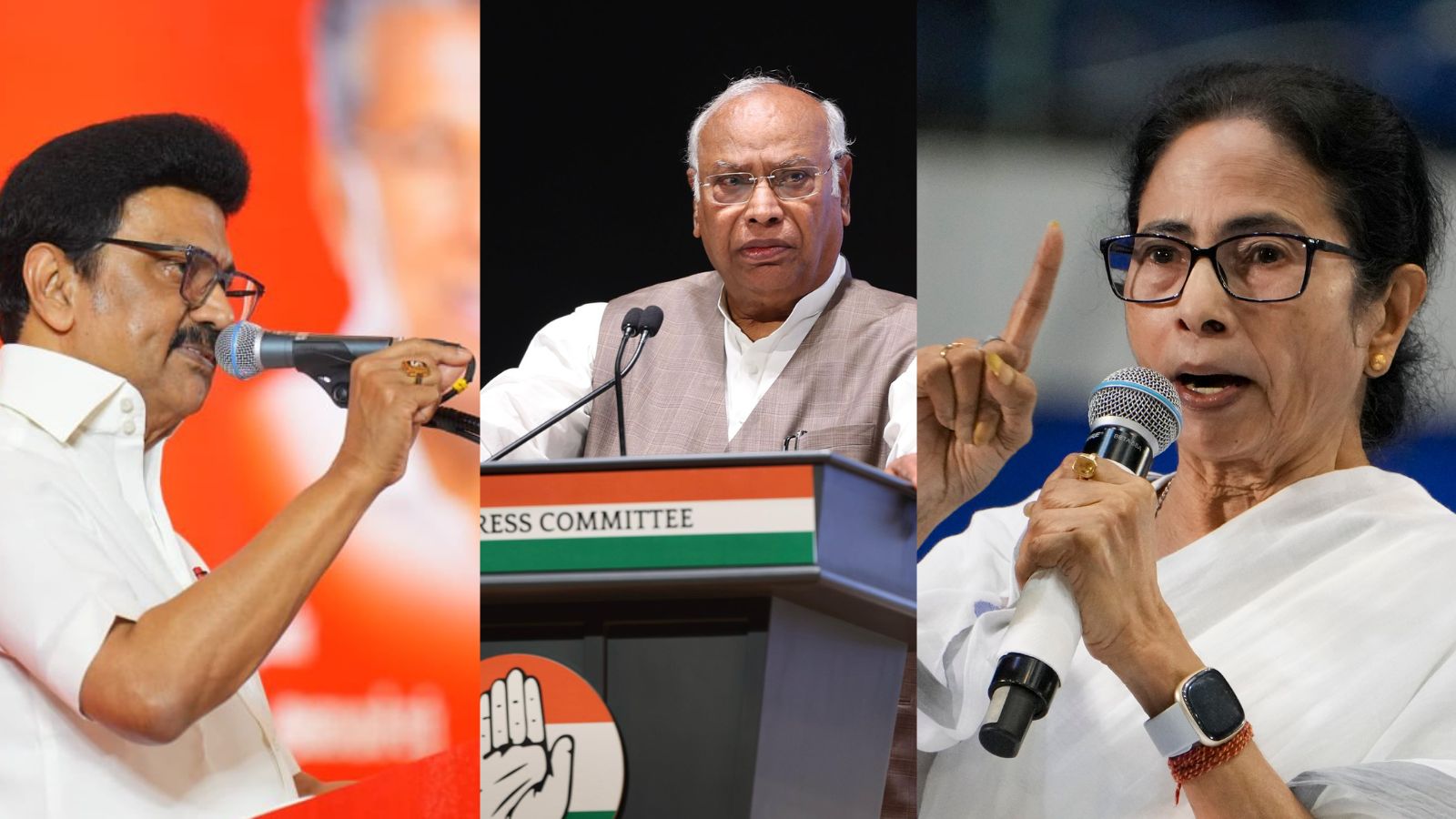 |
|
The article details a fierce backlash from opposition parties against the central government following a sudden increase in fuel taxes and cooking gas prices. Leaders across the political spectrum, from Rahul Gandhi of the Congress party to Tamil Nadu Chief Minister MK Stalin, have strongly condemned the price hikes as an assault on the household budgets of ordinary citizens. The core of the opposition's argument rests on the perceived disconnect between rising domestic fuel prices and falling global crude oil prices. They argue that the government is exploiting the situation to increase revenue at the expense of the common person. The increase in the price of domestic LPG cylinders by Rs 50 and CNG by Rs 1 per kg, coupled with the hike in excise duty on petrol to Rs 13 per litre and diesel to Rs 10, have become the focal point of this criticism. This timing is particularly sensitive, as it occurs when global crude oil prices have reportedly fallen to a three-year low, creating a fertile ground for allegations of opportunistic exploitation by the government.
Rahul Gandhi's sarcastic remarks about Prime Minister Modi offering a 'befitting reply to tariffs' set a tone of scathing critique. Mallikarjun Kharge, the Congress president, amplified this criticism by labeling the government's actions as a 'gift of loot,' accusing it of remaining in a 'Kumbhakaran-like' slumber even as the economy struggles with inflation. This metaphor of 'Kumbhakaran-like sleep' is repeatedly used, alluding to the mythological character known for his deep and prolonged periods of slumber, suggesting the government is oblivious or uncaring about the economic hardships faced by the people. Kharge further elaborated on this point, highlighting the contrast between the 41% decrease in international crude oil prices since May 2014 and the government's decision to increase central excise duty on petrol and diesel by Rs 2 each. He linked this policy to losses suffered by investors in the stock market, accusing the government of adding 'salt to the wounds' of those already struggling with financial instability. This framing of the issue resonates with the broader narrative of the government's alleged insensitivity towards the economic well-being of the common citizen.
The opposition's criticism extends beyond mere economic analysis. MK Stalin, the Chief Minister of Tamil Nadu, uses strong language, branding the central government as 'sadist' and demanding an immediate rollback of the price hikes without waiting for upcoming elections. He invoked a Tamil saying to emphasize the government's role in causing trouble rather than offering assistance. This framing of the government's actions as deliberate infliction of pain amplifies the emotional resonance of the issue. Similarly, Akhilesh Yadav, the chief of the Samajwadi Party, joins the chorus of condemnation, highlighting discrepancies in the MUDRA loan scheme and linking the price hikes to broader economic mismanagement under the BJP government. He emphasizes the recent losses suffered by stock market investors and points out the simultaneous increase in LPG cylinder prices and excise duty on petrol, painting a picture of a government disconnected from the economic realities faced by the common person.
The article also includes a counter-narrative, with the Karnataka BJP launching a 'Janakrosha Yatre' to criticize the Congress government for price hikes and other policy decisions. However, Deputy Chief Minister D K Shivakumar responds by urging the BJP leaders to instead protest against the central government's fuel price increases. He points out the hypocrisy of the BJP criticizing state government policies while the central government simultaneously implements similar measures. Chief Minister Siddaramaiah further criticizes the BJP's 'Janakrosha Yatre' as a 'farce' and challenges BJP leaders to explain why the central government is increasing petroleum product prices despite falling international crude oil prices. This back-and-forth between the ruling and opposition parties in Karnataka highlights the politicization of the fuel price issue and the tendency for both sides to use it as a tool to attack each other.
Mamata Banerjee, the Chief Minister of West Bengal, adds her voice to the opposition's criticism, arguing that the government's idea of 'Vikas' (development) is to extract every last penny from the common people. She highlights the increasing cost of essential goods and services, including medicines, petrol, diesel, and cooking gas, and accuses the government of assaulting household budgets while families struggle with shrinking savings and mounting debt. This criticism directly challenges the BJP's narrative of economic progress and paints a picture of a government that is indifferent to the economic hardships faced by ordinary citizens. Banerjee's comments further strengthen the perception that the fuel price hikes are part of a broader pattern of economic exploitation by the government.
In summary, the article showcases a multi-faceted critique of the central government's fuel price policies. The opposition parties frame the issue as a deliberate assault on the economic well-being of ordinary citizens, highlighting the contrast between rising domestic fuel prices and falling global crude oil prices. They use strong language and emotional appeals to connect with the concerns of the common person and to paint a picture of a government that is either oblivious or indifferent to the economic hardships faced by the people. The government, on the other hand, faces criticism from within its own ranks, as state-level BJP leaders are urged to protest against the central government's policies. This situation highlights the politicization of the fuel price issue and the tendency for both sides to use it as a tool to attack each other. The article ultimately presents a complex and nuanced picture of the political and economic implications of the government's fuel price policies.
Source: ‘Kumbhakaran-like’ slumber to ‘sadist’ govt: Opposition unleashes fire over CNG, LPG price hike
